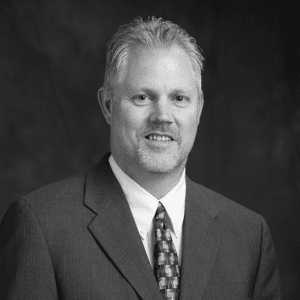CMS Proposes Rule for Nurses to Perform High-Complexity Testing
 Credit: Drazen_ / Getty Images
Credit: Drazen_ / Getty Images- The Centers for Medicare and Medicaid Services proposed a rule that would allow nurses to perform moderate- and high-complexity lab tests.
- The rule also alters the qualifications for individuals who can serve as high-complexity laboratory directors.
- Professional organizations responsible for oversight of medical laboratory graduates believe this new ruling could put patient outcomes in jeopardy and place an additional burden on an already stressed nursing staff.
Can nursing education prepare nurses to perform high-complexity laboratory tests? The Centers for Medicare and Medicaid Services (CMS) believes maybe it does. The CMS-proposed rule was released on July 22, 2022, recommending allowing nurses to perform these lab tests.
However, this has not been well received by professional organizations. Our contributors share their thoughts about the possible benefits, disadvantages, and potential problems that may arise if the rule is approved.
What Is High-Complexity Testing?
The U.S. Food and Drug Administration categorizes in vitro diagnostic testing based on the complexity of the test. The two broad categories are waived and nonwaived testing.
The Clinical Laboratory Improvement Amendments (CLIA) regulates the identification and designation of people required to perform the test. It is important to note that CLIA is a part of CMS certification and compliance for quality, safety, and oversight.
Waived tests are considered easy, with little to no chance the results will provide the tester with the wrong information or will cause a patient harm if it’s done incorrectly. For example, home-use urine pregnancy tests and other point-of-care tests fall under this category. Laboratories and nurses performing waived testing at point of care must still follow manufacturers’ instructions.
Local state regulations must also be considered when using lab tests on the CLIA-waived list.
Under the nonwaived category are moderate- and high-complexity testing. A test is designated moderate or high complexity after being evaluated on seven criteria:
- Knowledge
- Training and experience
- Reagents and materials preparation
- Characteristics of operational steps
- Calibration, quality control, and proficiency of testing materials
- Test system troubleshooting and equipment maintenance
- Interpretation and judgment
A nonwaived test would be a provider-performed microscopy. These are performed directly in the clinician’s office and require a microscope. Testing is restricted to clinicians with the knowledge and judgment to confirm the accuracy of the test and correlate the results against the clinical presentation.
CMS-Proposed Rule
The CMS-proposed rule released on July 22, 2022, is not the first time that the CMS suggested that nurses could perform and interpret high-complexity tests. In 2016, they published a memo sent to CLIA inspectors, indicating that a nursing degree qualified an individual to perform a nonwaived test.
The current 138-page proposed rule by the Department of Health and Human Services and CMS proposes that nursing is a qualifying degree for personnel requirements to perform moderate- and high-complexity testing.
The proposed rule also includes altering the qualifications for the high-complexity laboratory director (HCLD) position. Currently, this position is limited to certain medical doctors and board-certified individuals with a doctor of philosophy, or Ph.D.
The proposed rule expands this category to include professional doctorates or those with a master’s equivalency in addition to 16 hours of doctoral-level coursework in medical technology, clinical laboratory sciences, biology, or chemistry.
HCLDs oversee operational aspects of the lab, including validation, implementation, and interpretation of lab tests. The proposed modification includes accepting individuals with a doctor of clinical laboratory science (DCLS) as HCLDs.
However, as the American Association for Clinical Chemistry (AACC) notes, the DCLS degree is coursework driven and focuses on laboratory management. This is only one aspect of the HCLD role.
The Potential Impact of the CMS-Proposed Rule
One potential reason CMS may have had for this proposed new rule is a concern over a backlog of lab testing. However, as Jim Flanigan, CAE, executive vice president and CEO of the American Society for Clinical Laboratory Science (ASCLS) notes, aside from a flood of COVID-19 testing, there is not now, nor has there been, a backlog of lab testing.
He says the backlog of COVID-19 tests resulted from a lack of supplies, not because of personnel shortage.
“Second, the proposal from CMS does not reflect the agency ‘wanting’ nurses to do high-complexity testing. It would ‘allow’ nurses to do high-complexity testing. Those are very different things,” he says.
Rodney Rohde is a university distinguished professor and chair of the clinical laboratory science program in the College of Health Professions at Texas State University. He points out that the CMS-proposed rule would place nurses on equal footing with individuals who received medical or clinical laboratory, biology, or chemistry degrees.
Yet most healthcare-related degrees require only a fraction of the science and medical laboratory coursework required by CLIA for laboratory-testing professionals.
Neither Flanigan nor Rohde sees any benefit to passing this rule. In fact, they believe the potential impact will be negative if it passes. This is related to the rigorous training and credential exams required for individuals to work in any area of laboratory medicine.
This includes areas such as clinical chemistry, hematology, immunology, microbiology, or serology. Rohde notes that nearly all medical and healthcare degrees do not cover the breadth and depth of scope of practice in this area that is required to successfully complete the job.
“We love nurses, but we would never be allowed to do the work that they so expertly do with hands-on patient care. If they are allowed to conduct our moderate- to high-complexity testing, patient care and safety would be at stake,” he says.
In his role as an associate adjunct professor of biology, Rohde has taught introductory microbiology courses in a nursing program. He notes that nurses are not prepared academically to conduct moderate- or high-complexity laboratory testing, which would add a higher stress level on nurses.
“I would predict that if allowed, nurses would make major mistakes leading to higher patient morbidity and mortality, which would lead to massive lawsuits and damaging professional reputation issues for everyone involved,” he says.
As evidenced by the proposed rule, the CMS appears to believe that nurses’ education would enable them to perform these tests. However, as Rohde points out, nurses have no external resources for high-complexity testing except to go back to school and complete a degree in medical laboratory science.
In part, as a justification for the proposed rule, the CMS wrote:
“We recognize that in many healthcare systems, nurses perform the majority of the point-of-care testing in many different scenarios (for example, bedside, surgery centers, end-stage renal disease facilities). We do not have any reason to believe that nurses would be unable to accurately and reliably perform moderate- and high-complexity testing with appropriate training and demonstration of competency.”
As the ASCLS notes in an open letter to the Secretary of the Department of Health and Human Services and CMS, the rule does not establish any training standards or requirements for nurses to demonstrate competency to successfully complete laboratory testing.
Laboratory testing used for clinical purposes is ordered by a physician and completed in a lab that has been certified by CLIA. Many labs are also accredited by the College of American Pathologists or The Joint Commission. These criteria must be met to satisfy reimbursement requirements.
Professional Organizations’ Response to the Proposed Rule
Flanigan believes that the takeaway from this proposed ruling is that some healthcare institutions may see this as a way to save a few dollars by forcing nurses to perform testing they have neither the training nor the time to do. This will place patient care and safety at risk.
Several professional organizations have publicly indicated that this proposed ruling could adversely affect patient care and potentially result in higher morbidity and mortality rates.
In an open note, the American Society for Clinical Pathology, which comprises over 100,000 anatomic and clinical pathologists and medical laboratory professionals, expressed their reservations. They committed to working with organizations across the country who were concerned about patient safety to stop the policy.
They noted that of the 8,700 comments submitted to CMS, only a handful supported the new ruling. Most commenters recognized the inadequate education a nursing program provides to be able to step into the role of a medical laboratory science graduate.
The AACC outlined many concerns about the breadth and scope of the new CMS-proposed rule. These included the education required to perform testing or to serve as an HCLD.
The American Hospital Association represents nearly 5,000 hospitals and healthcare systems, 270,000 physicians, and 2 million nurses and other caregivers. The organization published an open letter, commenting on the proposed rule and identifying several concerns, including the CMS requirements for testing personnel.
They encouraged the agency to reject the proposed ruling, which they felt would weaken the safeguards currently in place for quality laboratory testing. The ASCLS also objected strenuously to this proposed rule.
The organization published an open commentary in which they wrote the ASCLS was stunned that “the agency has equated the experience with waived testing in point-of-care settings as somehow similar to high-complexity testing.”
They continued that the CMS had painted a “rosy picture” of how waived testing was performed. Yet, “basic waived testing deficiencies (as CMS notes are mostly performed by nurses) are regularly among the most cited by CMS and other deemed status surveyors under CLIA.”
In short, our contributors and professional organizations responsible for oversight of medical laboratory graduates believe this new ruling could jeopardize patient outcomes. It could also place an additional burden on an already stressed nursing staff.
Meet Our Contributors

Jim Flanigan is the executive vice President and CEO of the American Society for Clinical Laboratory Science (ASCLS). In his role, he assures successful implementation of programs and activities endorsed by the society and provides continuity of leadership to the membership, the clinical laboratory science community, and the general public. He provides the primary interface between federal agencies overseeing clinical laboratories and ASCLS. He is a 34-year veteran of the association management profession and a certified association executive.

Rodney Rohde is university distinguished professor and chair of the clinical laboratory science program in the College of Health Professions at Texas State University. He also serves as the associate director of the Translational Health Research Center. He holds certifications as a specialist in virology, microbiology, and molecular biology from the American Society for Clinical Pathology. Rohde has over 30 years experience, including a decade with the Texas Department of State Health Services.
You might be interested in

How Technology Has Changed the Role of Nursing
Learn how nurses use technology to enhance the level of care they deliver to patients and future technology trends in healthcare.

Nursing Scope of Practice vs. Practice Authority: What’s the Difference?
What’s the difference between NP nursing scope of practice and nurse practitioner practice authority? Learn the differences and how they apply to your career.

Types of Master’s Degrees in Nursing
A master’s degree in nursing can advance your nursing career. Find out more about MSN program options.